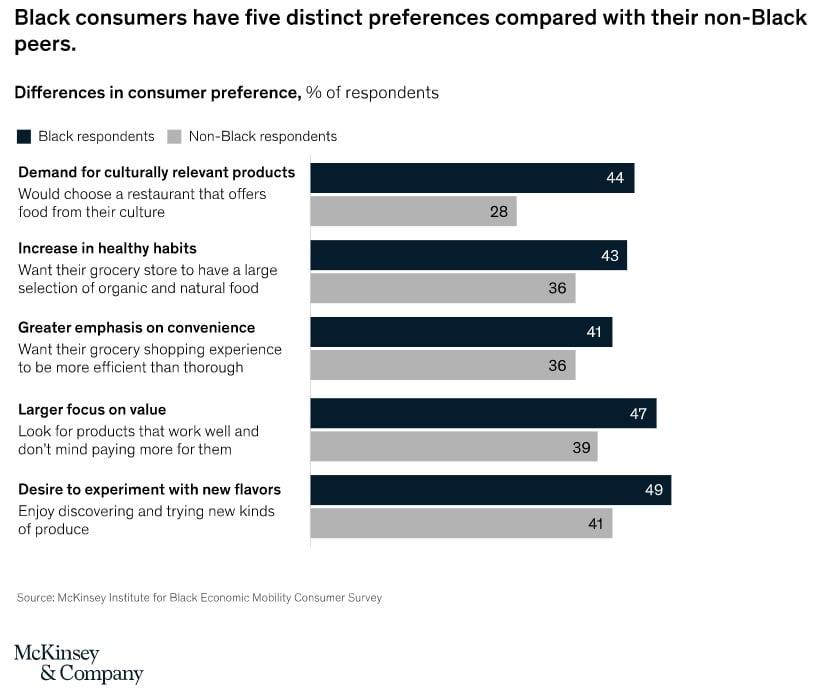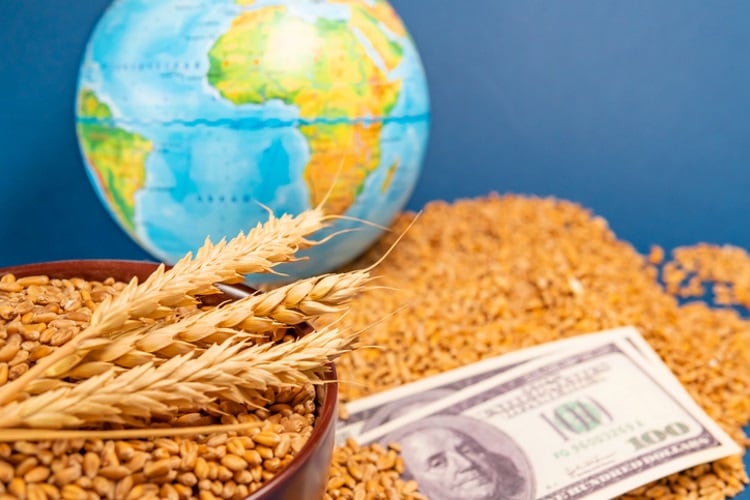Food effectively distinguishes the culture, community and identity of every group in society – and has done so for eons. For Black Americans, gathering around a table binds families and communities as the centerpiece of gatherings such as Sunday dinners, crayfish boils and graduation dinners.
While the function of food is common across groups, equitable access is not, and McKinsey’s study highlights that this holds back human development and creates disparate health outcomes for Black Americans. Food insecurity – the lack of reliable access to affordable, nutritious food – has been sadly prevalent over the past 20 years, with Black households twice as likely as White households to experience it.
However, Nourishing equity: Meeting Black consumers’ needs in food also reveals that stakes are high for food producers and retailers who continue to ignore this community.
Black consumer spend on food is expected to grow by 5% per year to reach $340bn by 2030 – a rate higher than the annual growth of the Black population. Considering that $20bn-$40bn is expected to come from dissatisfied consumers, the brands that win over these consumers could attract a healthy share of this spend and – according to McKinsey’s analysis – increase their spending on food by $4bn-$7bn per year.
Top findings
The research revealed that Black consumers are looking for producers to provide offerings that:
- Are culturally relevant – consumption driven by cultural and social values is on the rise in the US.
- Facilitate healthy habits – while only 3% of the general population is vegetarian or vegan, 8% of Black Americans are; they also prioritise organic options, fresh and clean ingredients.
- Are convenient – assortment is the third most important consideration in Black respondents’ purchasing decisions; and while brick-and-mortar is still the preferred channel, 22% today buy online.
- Demonstrate good value for the price – this community places huge emphasis on value for money; the sixth most important factor versus the 16th for non-Black respondents.
- Allows them to experience new foods – while Black consumers are willing to go outside their comfort zone, they still want healthy options that evoke Black culture and community.

McKinsey’s study also provides insight into how producers can better meet these preferences and challenges, by:
- Expanding their offerings with Black consumers in mind
- Frequently testing new concepts and offerings
- Investing in e-commerce
- Optimising their physical presence in Black communities
- Upgrading in-store experiences
- Engaging with customers to build loyalty.
We chat to Sara Prince, a partner in McKinsey & Company’s Atlanta Office on this possibly uncomfortable but essential topic., tackling questions like why food is such an important part of Black American culture, and why there is such a disparity in food access.





